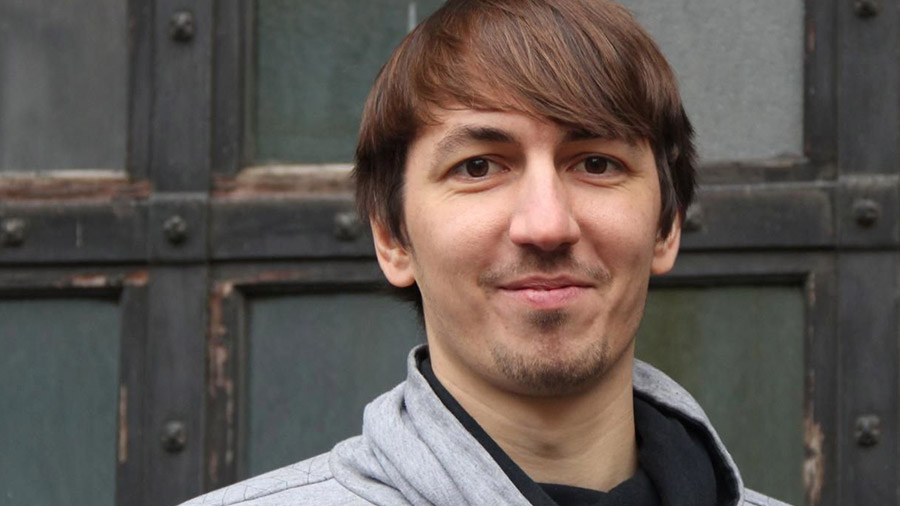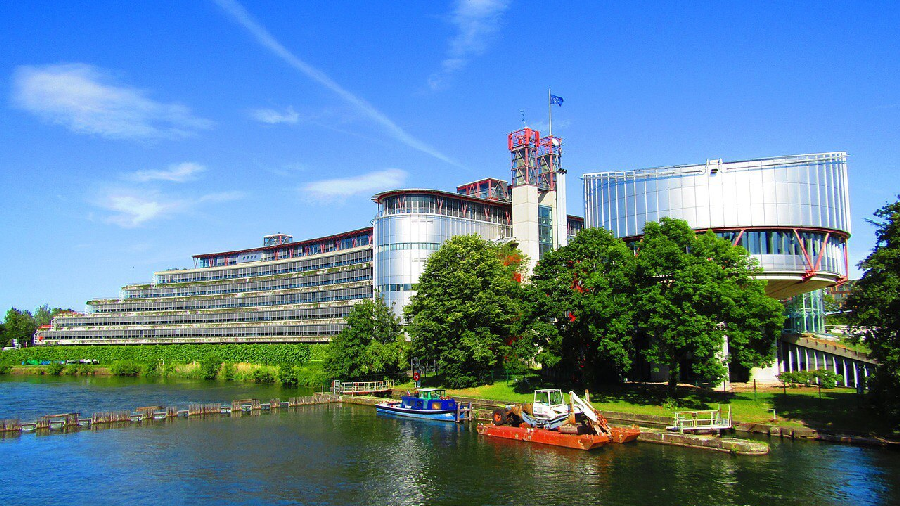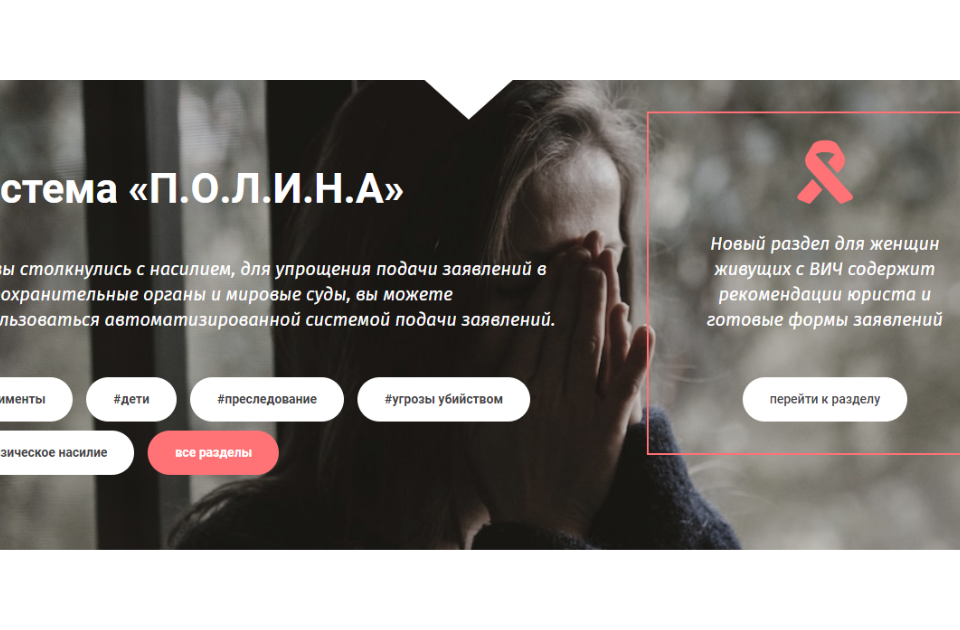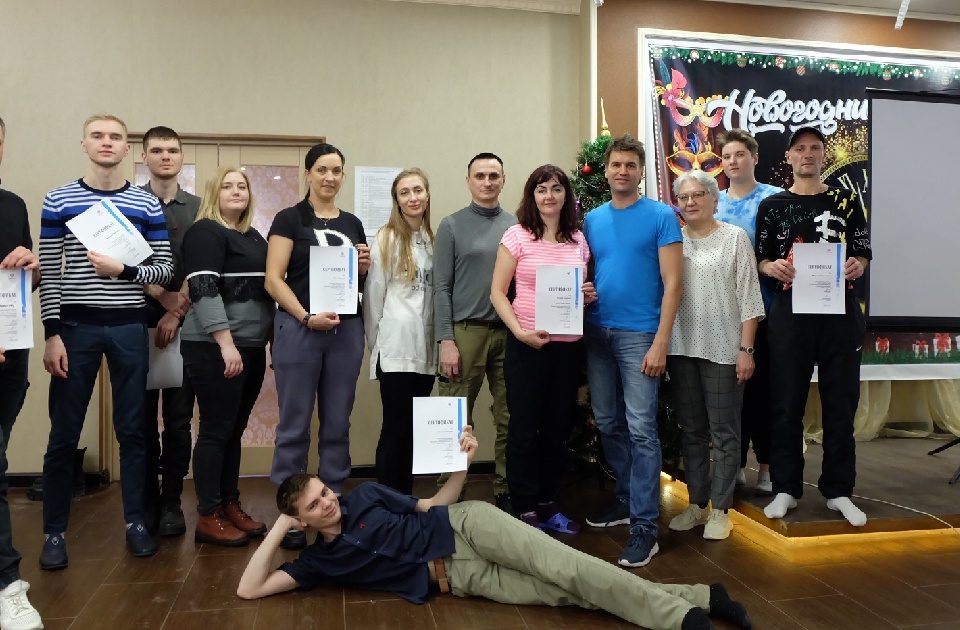Assistance to Refugees and Migrants in Legal Clinics of the Russian Federation
![]()
Interview with Simon Herker, cofounder of the refugee law clinic in Jena (Germany)

Simon, how did you come to be an expert on refugee law clinics in Germany?
I was a cofounder of the refugee law clinic in Jena in 2015. I am still involved with the clinic on a pro bono basis. Since November 2017 I’ve been working for the umbrella organization called Refugee Law Clinics Germany, which has its headquarters in Berlin.
Let us talk about the law clinic in Jena first.
The group consists primarily of law students plus an additional 10-15 volunteers. The students are first offered an academic program in migration and refugee law, and we organize free legal advice for refugees and migrants. Every week there is a consultation hour where refugees or migrants who are interested can come to our office in order to ask legal questions. These are the two most important parts of the clinic where the students are connected with lawyers and judges in Jena and the surrounding region. We have a loose connection to the university. The support we get from the university is largely symbolic, although we can use university rooms for our organizational meetings.
Who are the volunteers you mentioned? Are they students who already have knowledge and experience of working with refugees?
They aren’t, as it happens. Some of them have already done some volunteer work for refugees or are involved in this field in another way, and some of them are refugees themselves or have a migration background. Most of them do not have any experience when it comes to the legal aspects of migration and refugee law.
But then how can they help with creating an educational program if they don’t have the necessary knowledge?
They have received help from others. For example, I was involved in the clinic since 2013, so I already had some experience and knowledge. We also drew on the experiences of other law clinics, meaning we were able to use their knowledge to design our program.
About the education program: how long is this program and who does all the explanation work?
We invite some lawyers and judges, experienced legal practitioners in this field. And also other professionals who work in this field. We coordinate these educational programs; we do not function as main speakers.
Do you only have training courses related to legal aspects or do you also organize other sessions, for instance, intercultural communication?
Yes, we organize other courses as well. For example, there are courses on how to deal with the psychological traumas many refugees exhibit as well as on the part of the people who provide the legal advice. We try to implement other topics, but, of course, the most important target is to provide a good legal basis. Our educational program consists of two semesters. The first semester is the basic educational program and the more important one – here we offer at least one lecture during the week and a few lectures over the weekend, totaling about 6-7 hours per week. During the second semester, we add some additional knowledge on top of our basic training –skills like intercultural communication. The most important component is still providing the participants with good legal training, so they will be in a position to give valuable, competent advice during the consultation hours.
Do students get any credit points for these courses?
Since we operate independently from the university, there are no academic credits given to the students. There was one exception for the students enrolled in the Economics MA.
So only after completing these 2 semesters of preparation training are students allowed to take part in practical pro bono legal work, right?
Actually, they can already start with legal work in the second semester provided that they pass a special exam at the end of the first semester. They always work in pairs or even in teams of three, with one professional advisor always present with them while they are still new. Later, when they feel more experienced and ready, they can work in unsupervised pairs. We also expect them to complete a 3-week traineeship at a legal firm. Every month we organize a lecture by a judge with whom we sit and discuss our current cases. This judge is essentially our supervisor. We also always have the option of contacting and consulting an experienced lawyer, which we mostly do by e-mail.
What about the language barrier? How do you deal with those clients who do not speak English or German?
At the beginning, we worked mostly with those refugees who spoke English or German to a certain level. Over time we built up a pool of people who speak some of the refugees’ languages, and nowadays, in addition to our consultation hours, we also have an interpreter once a week who interprets from Pashto and Dari. So on Tuesdays Afghan refugees won’t have any problem, and on Fridays we have an Arabic interpreter.
And these interpreters are students as well?
It differs. Some of them are refugees themselves, some of them are students, and some of them are just people who have agreed to help.
How do refugees and migrants find out about your clinic and the possibility of you assisting them?
When we started our clinic, we opened our office in a neighborhood inhabited largely by refugees and their families. Later we also produced some flyers and spread the information among social workers. The latter have their own networks and they spread the word about our work. From month to month the number of clients grows as more and more people hear about us.
Do you need to select cases or do you have the capacity to deal with all the cases you have?
Everyone is very welcome to visit us during our consultation hours. We take only cases directly linked to immigration law. Jena is a small town, so we can still handle all the needs and accept everyone.
Tell us a bit more about the cases. What are they about?
In total we have had about 250 cases which were dealt with by our 15 consultants. We treat every question we receive and every person who visits our clinic as an independent case. In general, every case is different and depends on the stage within the refugee status process the client is currently at. Some clients come before they have even had their interview at the immigration office. In such cases, we explain the procedure and prepare them for their official interview. Most of the questions during this interview concern the reasons for their arrival in Germany, their background. One of the most important issues, especially in the case of the Syrian refugees, is the question of family reunification. Questions such as where they can live, whether they are allowed to work or not, move from place to place are among the most common inquiries. The next stage will be receiving the answer from the immigration office following their interview. And then, based on the response, they need either go to a court although, in some cases, we can support them.
And do you sometimes have cases which are too big or too complicated for you due to lack of resources?
Yes, of course. In such cases we usually advise clients to go to a lawyer, but the problem is that in Jena there are hardly any lawyers who specialize in migration and refugee law. And, of course, there is also the financial aspect. So if they come back to us, we try to help as much as we can, even in difficult questions. We try our best not to turn anyone down, except in some rare cases when we really do not know how to help the person, and in these cases we have to refuse.
So there are not that many pro bono lawyers in Jena…
Pro bono? Not at all! They are all paid by the refugees themselves, they don’t work for free.
And what about NGOs?
There are no other NGOs working in this field, except one organization in Erfurt which is 50 km away from Jena. They do not have separate consultation hours, and their services are not as accessible as ours.
Do you contact your colleagues from other law clinics in Germany or in other countries? Can you call them or ask for advice and assistance via e-mails?
There is a very good network of refugee law clinics in Germany which unites around 28 clinics. But usually we do not refer legal questions to other clinics in the network; it is mostly about organizational issues. For example, we reached out to other clinics in order to hear their ideas on how to attract more students to our clinic in Jena.
Is it difficult to get law students to volunteer in the clinic?
I would say that all clinics would be happy to have more students and more consultants. As you know, a large number of refugees arrived in Germany in the years 2015-2016. There weren’t that many lawyers in the regions who specialized in this legal field (there still aren’t), so I can say that if we had more professional consultants, we could’ve been of assistance to more refugees.
Coming back to the university: you said that you cooperate very little with the university. Would you like to expand this cooperation? Or are you satisfied with the current situation?
Back in 2013, when we established our clinic, there was a former professor of the Jena University who supported the idea of the clinic and talked to his colleagues about us. Unfortunately, none of the professors expressed interest in actively assisting the clinic. There was one assistant lecturer who led our educational program during the first semester. This wasn’t enough, of course, so we had to complete the program by other means. This professor helped to organize a series of lectures which were given by professors coming from various disciplines who connected their topic with the refugee crisis. At the end he even published a book which is based on these lectures. We would like the university to be more involved, especially in the educational program component, and also financially. We would like to organize the clinic more professionally and for this we would be happy to receive academic assistance from the university.
What are the main difficulties your clinic faces?
It takes a lot of energy to run this program continuously, with consultation hours twice a week and an educational program which has to be prepared every semester. It takes a lot of time, energy and money, so we constantly need to find financial support. Our law clinic, which is run by volunteers, needs about 50,000 euro every year. We also have to devote lots of time to the financial issues, instead of spending it on consultation hours and educational programs. We do not have our office at the university; we can only book rooms there for our meetings and activities. Since we have different equipment and books, we need a separate office and can’t leave everything at the university. Most of the money goes on covering the salaries of our lawyers and allowances for the interpreters. And we also need to buy some books and other specialized literature.
Where do you get your money from? Do you have any fundraising strategies?
We are completely dependent on various funds. Our main supporter in 2017 was the Robert Bosch Foundation. They have also almost entirely covered all our expenses for the first semester of 2018. In 2016 we received money from the regional government. Every year we have to look for other sources and funds. Another important and serious difficulty for us is the lack of regional lawyers who specialize in this field and can help us pro bono. We are dependent on two or three lawyers who cannot help us as quickly and effectively as possible, since we receive many questions during our consultation hours.
And what would you present as your best practice? What are you particularly proud of?
I am very proud of maintaining these office hours twice per week. I am proud of the 270 cases we received last year. We had about 30 people who benefited from out very successful educational program. Not everyone continued to volunteer during the consultation hours; some participants just wanted to receive knowledge about this topic. So we managed to establish a dialogue about migration in our city. More and more people are interested in the work we do and we receive a lot of positive feedback. We are quite satisfied with what we have done, but we are constantly trying to improve our educational program. It is very nice to hear from the students that this project has been of additional value during their studies.
What are you goals for the next 3-5 years?
In general, to be sustainable! The next stage would be to start our educational program in April 2018. It is still not fully organized and prepared. We want it to be even better than the previous ones. Also, we would like to expand our consultation office hours and organize them in Erfurt too, thestate capital. I would say the main goal is to continue with our work and expand our help to reach more people.
Tell us about the German umbrella organization of the law clinics. What is the history behind it? What are the main mechanisms of its work?
A few years ago two colleagues of mine came up with the idea of establishing an official network of the refugee law clinics in Germany. Every year we have one big event where representatives of all the clinics meet up and discuss various common issues. At first, it was an informal network without the official status of an association. In 2016 an official organization was established during our annual conference in September. There was heated debate, but in the end, the majority supported the idea of a formal association. We mostly argued about the purpose of the organization and why we needed it at all. The clinics mostly operate on a local or a regional basis, so the representatives wondered why it was necessary to establish a network organization.
And what is the purpose of this network?
There are several purposes. One is to make the network sustainable. The establishment was supported by one very active person at the beginning, but he has since retired. Basically, the association enables the organization of various network events and serves as a certain platform. Furthermore, we would like to find better ways to approach and contribute to public discussions on this topic and to better represent our clinics’ interests under the roof of one networking association.
What about the fundraising? Does the network help to achieve more funds for the clinics?
Yes, fundraising is one of the main issues dealt with by the network. In fact, the main issue at the basis of establishing the network was fundraising. One of the umbrella organization's first projects was to raise more funds. The representatives addressed the German government and asked for financial aid in the name of all the refugee law clinics in Germany. They are still working on acquiring this money, but at least we managed to open our own office in Berlin where two people work on a permanent basis.
What about international cooperation? Is your network part of a bigger international association of refugee clinics?
This is not currently our main focus, because we are quite new, but, of course, as an umbrella organization we are reachable for other networks and international organizations which want to cooperate with us. We are connected to European Network for Clinical Legal Education (ENCLE)and our representative took part in their annual event. We also sent a representative to Mexico City where an annual event of the Network for Global Justice Education took place last December. In January we also discussed possible cooperation on legal issues with a visiting professor from Thessaloniki, for example.
Do you think such international cooperation is useful or is it in fact the case that each country has its own specific situation?
We are very interested in international collaboration. Since international and European law is very structured, such cooperation might be very useful and interesting, especially for the students who would like to be involved in different exchange programs. We have discussed such a possibility with the University of California in Berkeley recently, for instance.
And what about your potential cooperation with NGOs, both on the national or international level? Is it of any interest to you?
This is also important for the refugee law clinics. When we address issues of family reunification, for example, I can think of many ways to cooperate with other NGOs which could be very helpful for everyone.
How do you see yourself in this RLC world? Do you want to continue being connected to the clinics?
I finished my MA last year and am now a PhD student. I work part-time for the network organization. As long as I am interested in this topic and I have a certain vision, I would like to be involved in the RLC world. It is still a very interesting and motivating topic for me, we have a lot of political debate within our umbrella organization. We are talking about thousands of law students who are involved in RLCs all over Germany, so it is a big network already. I want to be part of this swiftly growing family.
You mentioned some political issues. Do you participate in political meetings and debates or do you have contact with politicians? Are you interested in developing such connections?
This is also an important question for the law clinics, how politically involved they see themselves. I would say that nearly every refugee law clinic works or cooperates with politicians on one level or another, be it with the Ministry of Migration or with the mayor of a certain city. There are clinics where people want to be more politically involved and others where people would like to have fewer contact with politicians. So it quite differs from one place to another.


